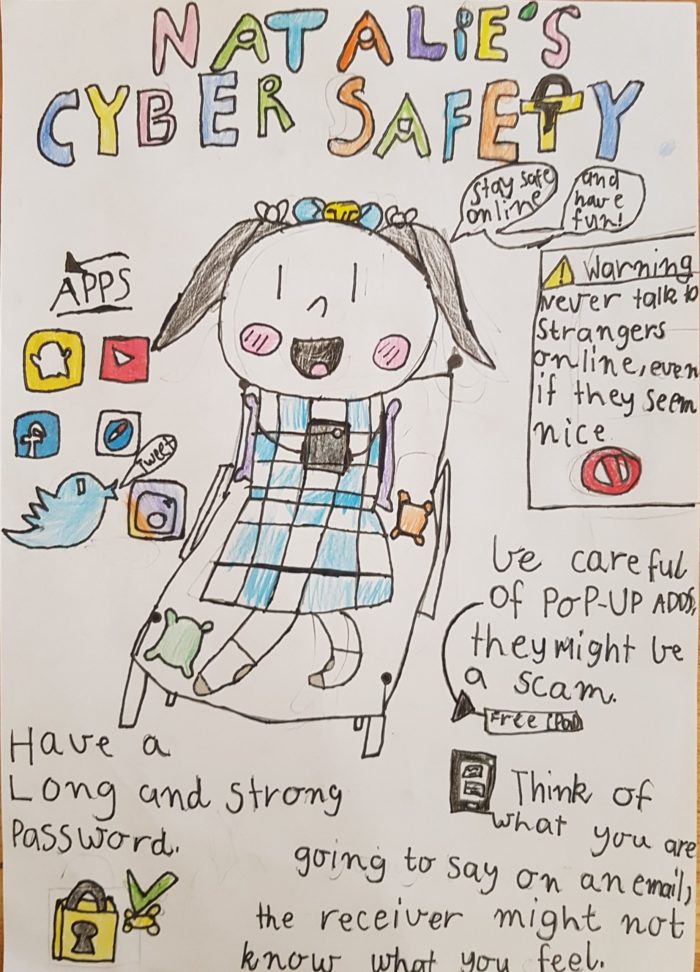Strathcona’s Continuous Learning Program has heightened our awareness of the positive power that technology has in our daily lives. It enabled us to continue to deliver education through three lockdowns and, very importantly, to communicate and maintain connections and a sense of community.
However, there is a dark side. With our students so much online and isolated in their homes in recent months, the School has found that warnings about online grooming needs to be amplified. While the School will do all it can, it is important that parents understand the online world of teenagers as much as possible. Most of the timing of these communications occur at home, probably when the girls are in their homes. Banning technology completely or confiscating devices is not necessarily the answer and can lead to girls being secretive with parents, when they most need the guidance of adults.
Parents are encouraged to take the time to listen to Susan McLean (informative video). I have heard her speak many times – she is a straight talker, and she is constantly supporting young people and their families when things go wrong. Good girls, who have great track records and loving parents, can make poor decisions. They are young, naive and inexperienced. Try to communicate to the girls that, if they make a poor decision online, to talk to you about it so that you can assist in attempting to sort it out. For our parents who need assistance in understanding the tech side, we encourage them to speak to our Head of Digital Learning and Innovation.
This week Strathcona shared an online parent information session, in which useful insights into managing online risks with daughters were outlined.
Some useful points to make when you are speaking with your children:
- The awful reality is that there are people – paedophiles – online who will cause harm to children and teenagers.
- Any app or social media platform that allows two people to communicate with each other is a place where potential offenders can groom your child.
- Apps that are popular with children or teens are where online offenders go to attempt to gain the trust of a minor.
- Grooming begins with trust-building: as soon as a child replies to communication from a stranger (often presenting as someone the same age), the process can begin; the child is rarely aware of what is occurring.
- It is important that parents:
- have ongoing, open and honest conversations about the risks of the online world and what is not ok when communicating on social media (it is not ok to be asked for a naked photo or to be sent a naked photo of someone else);
- ensure all devices and cameras are out of bedrooms and bathrooms at all times; they should only be used in communal areas of the house;
- reinforce that their children should only ever engage with people online that they know and trust in the real world.
- There is no such thing as privacy or anonymity online. There is a perception of anonymity that comes from being able to change privacy settings, however nothing that is created or shared via the Internet is actually private or completely deleteable.
- The Internet is a public place.
- Be aware that a site called ‘Omegle’ is a site, and related app, that puts you in a chat room with someone you do not know. Often users start asking for personal information. Language is uncensored and sexual activity is common. This is a dangerous site that is not appropriate for under 18 year olds. Any social media or website similar to this, where contact with strangers can occur, represents a significant risk to children and teens.
- One of Australia’s foremost experts is Susan McLean and she has an informative video (outlining the risks associated with online strangers and grooming).
- Common Sense Media is a great resource that reviews popular apps and websites. Parents can use this to search for apps their children want to use, and assess their risk.
Young people have been through a lot over the last year and, in some cases, their judgement and decision-making is not as good as it might be. We encourage all parents to be proactive in this space.


